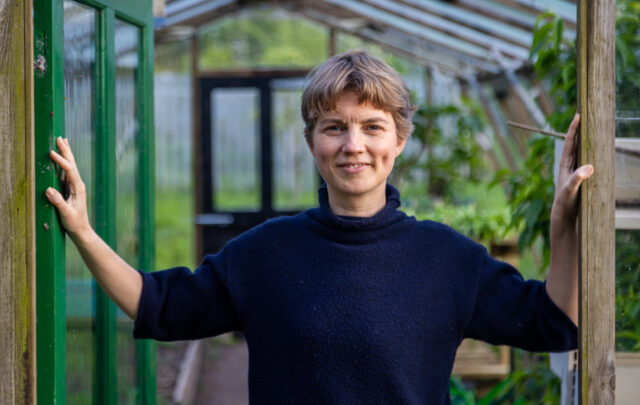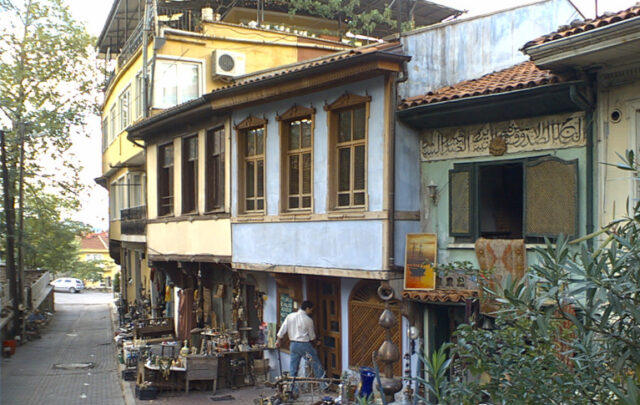Wanting to demonstrate that “cities can be less impactful on the planet,” natural builder Lydia Doleman bought and remodeled a Portland house to demonstrate her values. Composting toilets reduce water usage while feeding the soil. Growing food shortens dependencies. Building materials were recycled and/or less toxic. She revised the floor plan to create spaces which encourage shared living rather than separate spaces. She also built Portland’s first permitted straw bale residence a cob studio and. Take a tour with Lydia in part 2. Episode 246. [theflyinghammer.com]
Natural Buildings for Urban Living (part 1)
By Janaia Donaldson, originally published by Peak Moment Television
November 18, 2013

Janaia Donaldson
Janaia Donaldson is the host and producer of Peak Moment TV conversations showcasing grass roots entrepreneurs pioneering locally reliant, resilient communities during these challenging times of energy and resource decline, ecological limits, and economic turbulence. We tour North America in our mobile studio, taping on location. Peak Moment Conversations are online at www.peakmoment.tv/
Tags: Buildings, Cohousing, compost toilets, strawbale building, Urban Design
Related Articles
Making way for Justice in each community – Transition Alive 1
By Cam Elizabeth, Transition Together
What is clear to me is that to be ‘just’ we need to be acting alongside people and with awareness of our connection to all others, human and otherwise. Justice is lost when we lose sight of the bigger picture.
May 6, 2024
A world in crisis requires we recover the common good beginning in the places where we live
A political strategy that builds a future based on the common good beginning in the places where we live can meet this need, and potentially help avert worst case scenarios.
May 6, 2024
Looking for hope
We need to believe in people if we, the people, are to have any hope for ourselves and for humanity.
May 3, 2024




